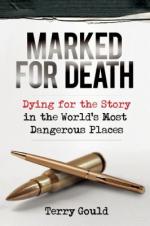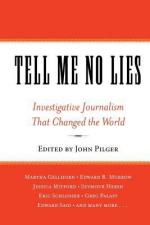May 1, 2018 | SuzyQ
May 3 has been designated as World Press Freedom Day in recognition of a "free, pluralistic and independent press" and its essential part of a democratic society. Indeed, the purpose of journalism, said Chicago newspaper columnist and humorist Peter Finley Dunne in the early 1900s, is to "comfort the afflicted and afflict the comfortable." And in the words of President Barack Obama: "Journalists give all of us as citizens the chance to know the truth about our countries, ourselves, our governments. That makes us better, it makes us stronger, it gives voice to the voiceless, it exposes injustice, and holds leaders like me accountable."
Investigation and report of the burglary at Watergate that climaxed with a President's resignation.
An Iranian-American journalist chronicles her imprisonment in Iran, and provides a penetrating look at the country and its political tensions, based on six years of research and interviews with Iranians across society.
Vivid and heart-stopping, the dispatches of World War II reporter George Weller are immortalized in a new collection--edited by his son-- of wartime reports that give firsthand accounts of the Nazi invasion of Eastern Europe.
Describes the lives and dangers faced by five war correspondents who reported from the line of fire during World War II to provide content for the newspapers and magazines back home.
A detailed account of the muckraking movement in early twentieth-century American journalism and its contribution to progressive reforms.
The Civil War was the first war in history to leave a detailed photographic record, and Mathew Brady was the war's chief visual historian. Previously, the general public had never seen in such detail the bloody particulars of war--the strewn bodies of the dead, the bloated carcasses of horses, the splintered remains of trees and fortifications, the chaos and suffering on the battlefield. Brady knew better than anyone of his era the dual power of the camera to record and to excite, to stop a moment in time and to draw the viewer vividly into that moment.























